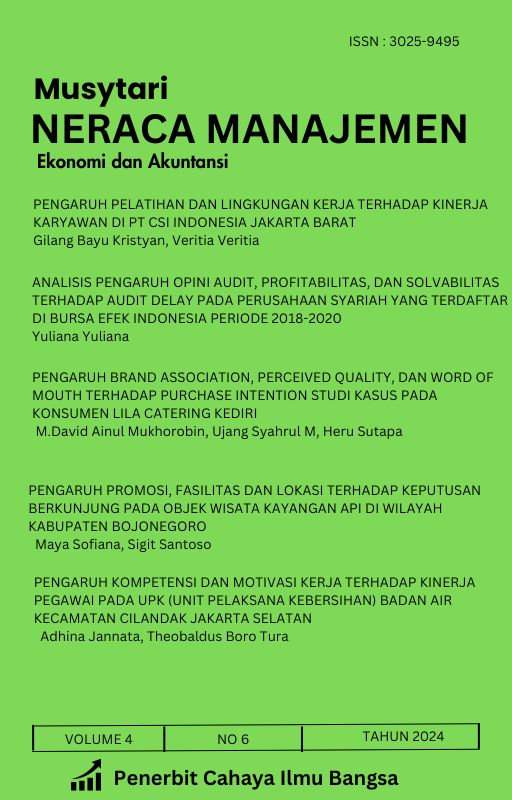Dampak Sosial-Ekonomi Pajak Pertambahan Nilai terhadap Masyarakat Berpenghasilan Rendah: Studi Kualitatif Berbasis Observasi Partisipatif di Kota Medan
Published 2025-06-11
Keywords
- indonesia
How to Cite
Abstract
This participatory observation-based qualitative study analyzes the socio-economic impact of the 11% Value Added Tax (VAT) on low-income communities in Medan City. Through intensive engagement with 25 low-income households and informal sector MSME actors in Amplas and Medan Marelan sub-districts, the research reveals three critical findings: First, economic adaptation strategies involving basic goods substitution (premium→medium rice, meat→eggs) and collective purchasing mechanisms (food-saving cooperatives, bulk-buying pools), triggering nutrition trade-offs and social dependency. Second, social impacts include decomposition of traditions (postponed circumcision ceremonies, discontinued communal feasts) and escalated domestic conflicts due to budgetary pressure. Third, the vital role of non-governmental actors (MSME cooperatives, religious organizations) as buffers through subsidized food markets and nutritional aid. The study confirms the regressive nature of VAT in exacerbating vulnerabilities via rationalized basic consumption and increased informal debt, recommending policy interventions based on multi-rate VAT schemes and MSME supply-chain mentoring.
Keywords: Value Added Tax; Low-Income Communities; Economic Vulnerability; Consumption Adaptation; Inclusive Fiscal Policy
References
- Andreana, P., & Inayati, I. (2022). Principles of taxcollection in value added tax (VAT) on digital services in Indonesia. Journal of Public Policy,8(1). https://doi.org/10.35308/jpp.v8i1.4692
- Asri, S. A. C., & Suseno, D. (2023). The effect of value-added tax policy on per capita income and inequality in Indonesia. Journal of Economics, Business, and Accounting Ventura, 26(2). https://doi.org/10.14414/jebav.v26i2.3526
- Barrios, S., Coda Moscarola, F., Figari, F., Gandullia, L., & Riscado, S. (2020). The fiscal and equity impact of social tax expenditures in the EU. Journal of European Social Policy, 30(3). https://doi.org/10.1177/0958928719891341
- Browning, E. K. (1978). The burden of taxation. Journal of Political Economy, 86(4). https://doi.org/10.1086/260703
- Caesaria, S. M., Mumpuni, Y. T., Mayasha, E., & Murti, G. T. (2024). Analysis of the impact and implications of the VAT rate increase in Indonesia. Journal of Information System and Technology, 5(7). https://doi.org/10.59141/jist.v5i7.1150
- Decoster, A., Loughrey, J., O’Donoghue, C., & Verwerft, D. (2010). How regressive are indirect taxes? A microsimulation analysis for five European countries. Journal of Policy Analysis and Management, 29(2). https://doi.org/10.1002/pam.20494
- Fadillah, L., Gunarto, M., & Helmi, S. (2025),Evaluating the impact of value-added tax oneconomic growth, inflation, unemployment, andconsumer behaviour in developing countries:Evidencefrom Indonesia. InternationalConference on Business, Economics, and Management, 2(2).https://doi.org/10.47747/icbem.v2i2.2615
- Fathoni, M. I. (2025). Indonesia's value added tax (VAT)reform: Fiscal benefits and sectoral impacts.Journal of Scientific Accounting, 6(1).https://doi.org/10.46799/jsa.v6i1.2039
- Fitriani, K. L., & Susanti, F. (2024). DAMPAK KENAIKAN TARIF PPN TERHADAP TINGKAT KEMISKINAN DI INDONESIA.Journal of Research and Multidisciplinary, 2(1).https://doi.org/10.61722/jrme.v2i1.3169
- Górecki, M., & Letki, N. (2020). Social norms moderate the effect of tax system on tax evasion:Evidence from a large-scale survey experiment.Journal of Business Ethics, 167(3). https://doi.org/10.1007/s10551-020-04502-8
- Kartiko, N., & Firmansyah, A. (2024). Revisiting value-added tax structures: Strategies for mitigating regressivity in basic commodities consumption. EDUcore: Journal of Educatio and Research, 4(1). https://doi.org/10.54957/educoretax.v4i1.668
- Kouam, J. C., & Asongu, S. (2022). Effects of taxation on social innovation and implications for achieving sustainable development goals in developing countries: A literature review. International Journal of Innovation Studies, 6(3). https://doi.org/10.1016/j.ijis.2022.08.002
- Nasrudin, R., Hartono, D., Moeis, F., Pratama, A. P., Fadilla, R., & Effendi, R. (2022). THE POTENTIAL DISTRIBUTIONAL AND ECONOMIC WIDE IMPACT OF THE NEW INDONESIA’S VAT LAW IMPLEMENTATION. Park, H., Lee, J., & Shin, J. (2023). How does taxation affect corporate social responsibility? Evidence from a Korean tax reform. Journal of Business Ethics, 187(3). https://doi.org/10.1007/s10551-023-05536-4
- Phadera, L., Michelson, H., Winter-Nelson, A., & Goldsmith, P. (2019). Do asset transfers build household resilience? Journal of Development Economics, 138. https://doi.org/10.1016/j.jdeveco.2019.01.003
- Putra, O. J. (2024). Value added tax: A suitable alternative for taxing the digital economy?
- (Indonesian context). Journal of Policy and

